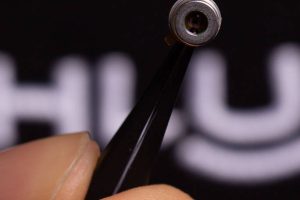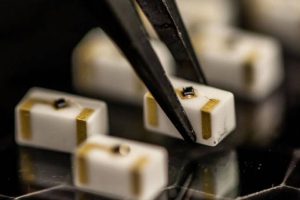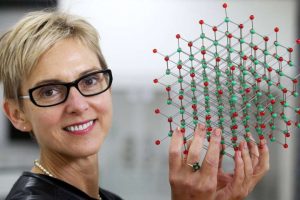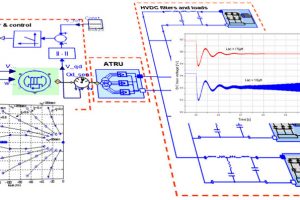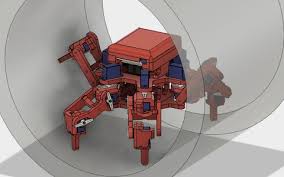University of Sheffield spin-out Phlux has announced its first product, a family of 1,550nm avalanche photodiodes. Called Aura, the infra-red devices are built using antimony alloy modified InGaAs. “The resulting sensors can be operated with APD gains up to 120, enabling even the smallest signals above the noise floor of a connected trans-impedance amplifier to be amplified,” according to the ...
Tag Archives: University of Sheffield
University of Sheffield tackles semiconductor skills shortage with Bay Photonics and Phlux Technology
The University of Sheffield is leading a government-funded project to address the semiconductor skills shortage in the UK with Devon-based Bay Photonics and Phlux Technology of Sheffield by improving knowledge of semiconductors in the the general public, and particularly pre-higher education students. “The project is called ASISST – addressing shortages in semiconductor skills training – and will see the partners ...
DASA demonstrates telexistence technologies for hazardous work
The UK government’s DASA (Defence and Security Accelerator) has demonstrated three telexistence technologies at its BattleLab as a result of the Telexistence: Phase 2 competition. It had made £1.3 million available for “telexistence” innovations as part of a competition for commercial proposals, launched in January 2022. The three projects that had been selected from Phase 1 were MediTel (involving the ...
EW BrightSparks 2022 profile: Ece Erkan
Now in its fifth year of awards, EW BrightSparks sees Electronics Weekly partner with RS Grass Roots to highlight the brightest and most talented young engineers in the UK today. Here, in our series on the latest EW BrightSparks of 2022, we highlight Ece Erkan, an Electrical and Electronic Engineering Student at the University of Sheffield. Achievement Ece outlined to the ...
Band engineering produces low noise avalanche photodectors
Researchers at the University of Sheffield are developing extremely low noise avalanche photodetectors using the band engineering properties of gallium arsenide bismide, says Caroline Hayes. An avalanche photodetector (APD) is able to produce large currents from the input of an extremely low light signal, down to a few photons. When a photon is absorbed, it excites an electron to the ...
University of Sheffield launches Sheffield Quantum Centre
A new research centre, the Sheffield Quantum Centre, has been launched by the University of Sheffield.
University of Sheffield spin-out Epipix developing micro-LEDs
Epipix (stylised EpiPix) is a recently launched University of Sheffield spin-out company developing “the next generation” of micro-LED technology. The company is developing and commercialising micro-LED technology for photonics applications, such as micro-displays for portable smart devices, augmented reality, virtual reality, 3D sensing and visible light communications. Underpinned by research from Professor Tao Wang and his team at the University ...
Cardiff researchers create low noise compound avalanche diode
An ultrafast and highly sensitive ‘avalanche photodiode’ that creates less electronic ‘noise’ than silicon rivals
EPSRC puts cash into electrical machines for UK plc
The Engineering and Physical Sciences Research Council (EPSRC) is putting £10m into the ‘Future Electrical Machines Manufacturing Hub’, to be led by Professor Geraint Jewell at the University of Sheffield, with connections to Newcastle University and the University of Strathclyde. Industrial partners include Rolls-Royce, Siemens, GKN, Dyson, Protean Electric and Hoganas. “The Hub will address key manufacturing challenges in the ...
End to roadworks
The universities of Sheffield, Birmingham, Leeds and Bristol have received a government grant of £26.6 million to develop micro-robots (pictured) which will run through underground pipes to find and mend cracks. “While for now we can only dream of a world without roadworks disrupting our lives, these pipe-repairing robots herald the start of technology that could make that dream a ...
 Electronics Weekly Electronics Design & Components Tech News
Electronics Weekly Electronics Design & Components Tech News
